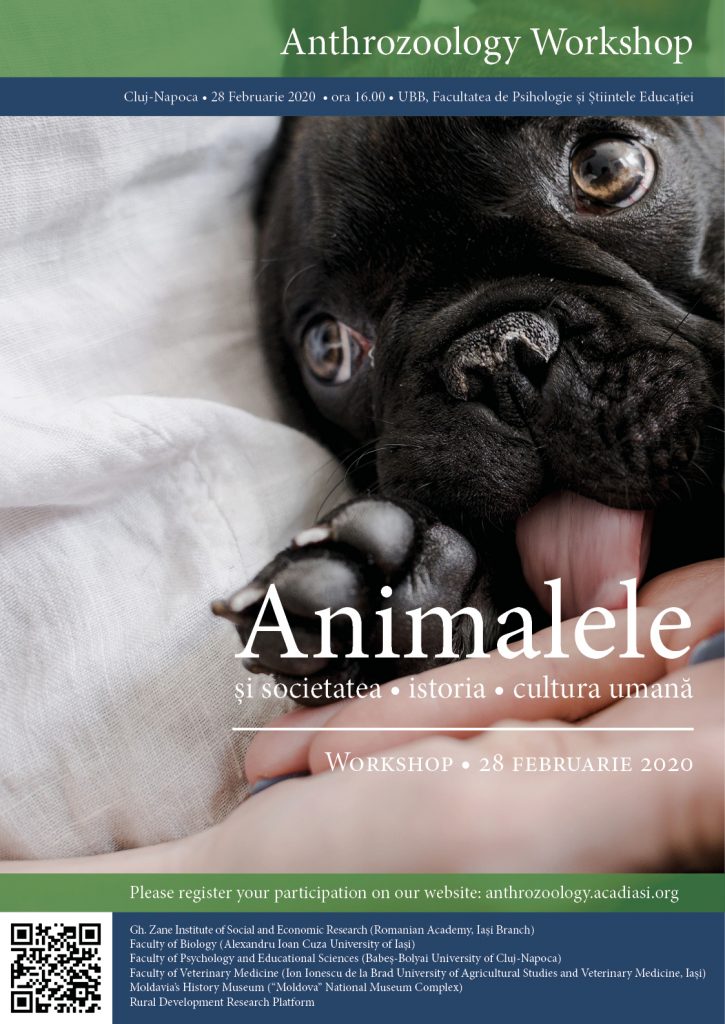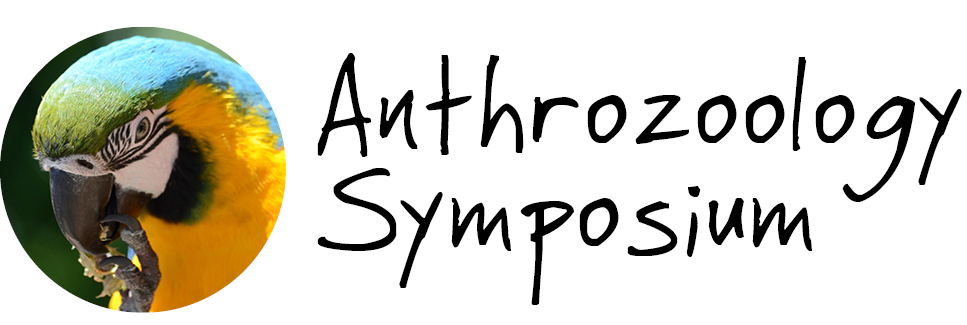- Ideas, concepts, and beliefs about animals
- Theories on the differences and gap between humans and animals
- Animals rights and human obligations towards them
- Species extinctions and human responsibility
- Animals in literature, mythology, arts, or folklore
- Animal psychology
- Cognitive ethology
- Mental models and economic values in the human-animal relationship froma historical perspective
- Animal protection movements and supporting legislation
- Speciesism and anti-speciesism

Animals and Society/ History/ Human Culture
On the 28th of February 2020, Animals and Society/ History/ Human Culture workshop was organized. The debate was moderated by Irina Frasin. The participants were as follows: George Bodi, Codrin Dinu Vasiliu, Ionut Bârliba, and Liviu Măgurianu. Animals are present in the myths, legends, and folklore of all people around the world. The religions of all communities include animals in their cosmologies, beliefs, rituals, or practices. Animals have been worshipped, regarded as taboo, sacrificed, or associated with various deities and spirits. Animals exist as cultural symbols and linguistic metaphors, and whenever we wish to think of an animal beyond what our culture taught us, we come to realize that we are addressing a difficult approach. Animals live as mirrors of our thinking, and, with their help, we can reflect, discuss, and classify the existent beings and ourselves. However, far from and beyond, animals are present in our daily life, and the way in which we see and interact with them is largely based on the traditions inherited. In recent years, we have started realizing that animals, just like us, are beings that wish to live a pain-free life. Due to the massive dependency of human society to the non-human animals, they have been treated as simple resources, animals-machines for an exceedingly long time. However, nowadays the cognitive ethology and other animal-related sciences question the magnitude of the differences between us. The debate suggested by this workshop has concentrated on the ways in which animals have been perceived and understood in different societies and cultures. The following themes have been addressed:
